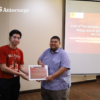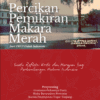The Supreme Court of the Republic of Indonesia (“Supreme Court“) has introduced electronic administration of cases in Indonesian Courts through the Supreme Court Regulation number 3 of 2018 on Electronic Administration of Cases in Court (“SCR No. 3 of 2018“).
The new system is set to be applied for civil, religious, military administrative and state administrative cases examined at the relevant Indonesian Courts (i.e. District Court, Religious Court, Military Tribunal and State Administrative Court).
Key Features
The case electronic administration is intended to be used by lawyers and private users who are registered with the Court Information System provided by the Supreme Court. This new facility will provide the services of electronic registration of cases, electronic service of summons and issuance of copy of court decision and/or order through electronic.
It is also stipulated in the SCR No. 3 of 2018 that information of cases contained in the Court Information System shall have legal power equal to the case registration book.
The SCR No. 3 of 2018 does not provide detailed technical information on the operation of the case electronic administration. However, it requires Secretary and Directorate Generals of Judicial Institutions of the Supreme Court to issue implementing regulations and/or to amend the existing regulation on case administration that needed in accordance with the characteristic of services and cases in each judicial institution at the latest within 6 months since the enactment of the SCR No. 3 of 2018 on 29 March 2018.
Implementation of Case Electronic Administration in General Courts
As mandated in the SCR No. 3 of 2018, the Directorate General of General Courts of the Supreme Court has issued guidance for the implementation of case electronic administration in general courts through Decree No. 271/DJU/SK/PS01/4/2018. This implementing guidance is applicable for all types of cases within the jurisdiction of general courts excluding criminal cases from the first instance to the appellate level that includes both general and also special civil cases (i.e. cases tried in the district courts, commercial courts as well as industrial relations courts).
According to the guidelines, the electronic administration of cases in general courts is carried out through e-Court application that integrated with the Court Case Information System. Individual or lawyers who wish to use such facility is required to register online to the e-Court application.
Lawyers who have been registered in the system may register claims or petitions along with the supporting documents online. After the registration, an estimation of the court fees will be generated, and payment can be made online. Once payment of the court fees is confirmed, the plaintiff or the petitioner will automatically receive case number that has been registered in the Court Case Information System.
Service of summons, submission of pleadings and issuance of copy of court judgment and/or order may also be done online subject to agreement of the parties. At the first hearing, the Panel of Judges shall offer the parties to proceed the case through electronic. If the parties agree with the electronic proceeding, they are required to register their electronic domicile that will be used for service of summons and copy of judgment and/or order.
Submission of pleadings can be done online by uploading them to the e-Court application to be forwarded to the electronic domicile of the adverse party. After completion of the proceeding, the court registrar will deliver copy of judgment or order to the parties through e-Court application at the latest 14 days after the reading of the same. Particularly for insolvency cases, the service of judgment is made at the latest 7 days after it is being read. The service of summons and copy of judgment to the electronic domicile of the parties are deemed proper and lawful.
The e-Court application is set to be implemented at the District Court of Surabaya and Central Jakarta in May 2018 and will be followed by the 1A special class District Courts in August 2018.
Our Commercial Dispute Resolution Practice
We appear before courts and tribunals defending clients in all types of commercial disputes and at all levels of trial from the first instance to the top appellate litigation.
Our firm has had handled cases involving debt recovery, insolvency, maritime and shipping, employment/industrial relations, insurance and other commercial and corporate contentious matters.





